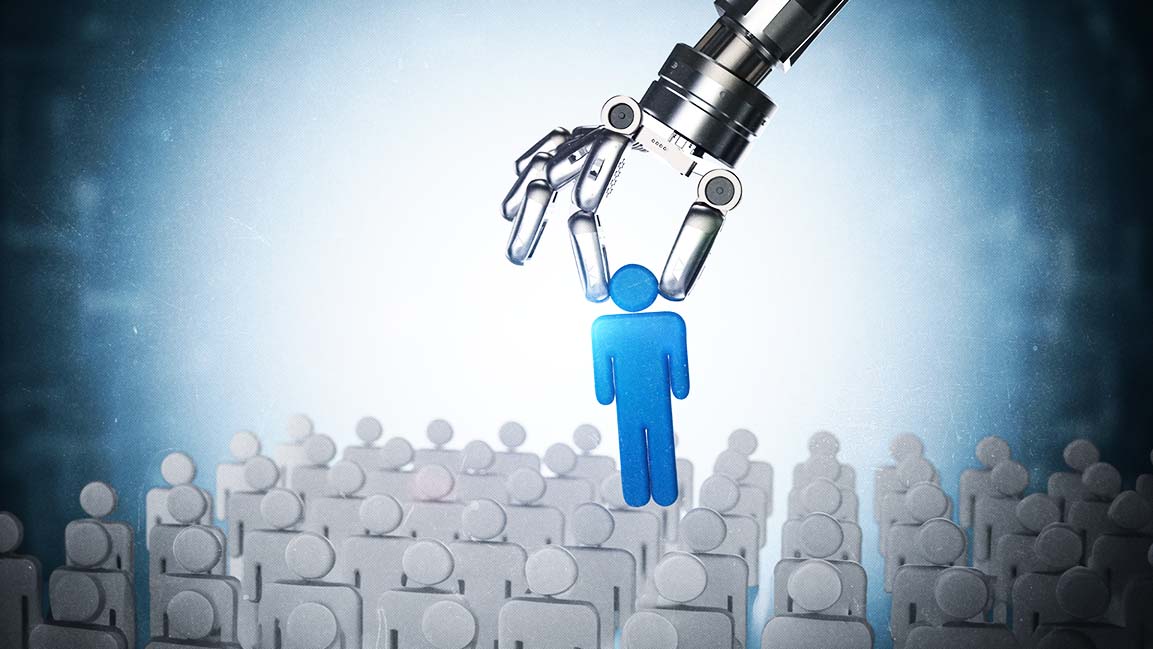- | 9:00 am
AI is revolutionizing hiring in the Middle East. So why is the human element crucial?
Human intervention is needed in the hiring process to ensure it is used responsibly.

When Tareq was laid off from his engineering job, he thought he could secure another soon. However, after sending out more than 70 applications, he could only land a job two years later.
“About 90% of applications were to the GCC, particularly the UAE and Saudi Arabia,” he says. “I was sending out my resume, and there was no feedback or request for interviews, which I found surprising. Some of the jobs I applied to had particular skill set requirements, which I matched for, but still, nothing came of it.”
He believes AI tools used in the screening process could be to blame.
“I would submit my application and sometimes get a rejection after 30 minutes,” says Tareq. “This happened to many of my colleagues, who are also quite experienced in their fields. The screening process examines a candidate’s skills, experience, and maybe other factors, like nationality.”
AI is quickly gaining momentum in the Middle East. With the advent of ChatGPT and AI, many companies are now looking into using this technology to find and hire candidates.
According to data from Predictive Hire, nearly 55% of companies worldwide are investing in AI-based automated recruitment measures, believing that it will enhance efficiency and enable data-driven judgments.
AI FOR GOOD
Despite concerns about AI bias, some experts believe it can significantly improve the hiring process.
Aws Ismail, Director at recruitment firm Marc-Ellis, says AI could be a time saver for managers. Instead of spending hours conducting interviews, AI could help shave off time by filtering through candidates and shortlisting the top ones to be interviewed. “We did a survey with our clients and found that managers were spending an equivalent of one month a year doing interviews,” says Ismail. “From a productivity point of view, that time could be used so much better.”
As such, the firm is now working on launching a virtual interview platform, AIVI, that enables job seekers to practice their interviewing skills in real-time while also screening candidates for hiring managers. “This AI platform will help people learn how to do interviews,” he says. “It will ask questions based on the candidate’s skills and the job they’re applying for and start marking their answers. We also took it one step ahead and focused on eye contact, so where are they looking on the screen? Also, how confident are they in their voice?”
Although AIVI has yet to be officially launched, companies and job seekers are already showing interest. Marc-Ellis has also used the platform for some of its internal job openings.
BIAS IN HIRING
While AI may revolutionize the way people get jobs, it has challenges.
AI can be biased, especially if the people who create the programming are consciously or unconsciously biased. For example, suppose a previous hiring manager has an inadvertent preference for race, gender, or age. In that case, the AI will learn these preferences and interpret them as indicators of incompetence.
However, automated processes can also be programmed to remove bias. “You can tell it, for example, not to distinguish between males and females and not to distinguish between if this person is Arab or Western,” says Ismail. “You can set all that up, even if it’s learning through the managers; it will take these things away.”
If trained fairly, AI can even prevent bias before it occurs. By feeding it the right data, continuously analyzing the results, and uncovering biases as they arise, AI is bound to become more impartial with time.
“AI would probably be less biased because it’s not looking at where you’re from, how you speak, your background, your religion,” adds Ismail. “It’s actually just looking at the relevant things related to the job. So, I think it will reduce bias in that sense.”
HUMAN INTERVENTION
Still, human intervention is needed in the hiring process. While AI may have come a long way since it debuted almost 30 years ago, people still need to oversee it to ensure it is used responsibly.
Darren Streete, Founder of HR consultancy firm Deconstructing HR, believes that ultimately people should be in charge of AI. Since it’s a powerful tool that assists decision-making, people are responsible for managing it ethically. “AI is a very powerful and useful tool, but you, as the person in charge of the AI, have to take on the responsibility of how to use it effectively,” he says.
This means that people still need to guide it, reflecting on and examining its outcomes critically. “We should use it cautiously, not 100% relying on the outputs that come out of the AI,” says Streete. We need to always have a healthy kind of constructive approach. Human intervention is still needed to look at the data critically and examine it carefully.”
With AI quickly being integrated into many industries and businesses in the region, job seekers have no choice but to factor it in when applying for jobs. Highlighting job experience and qualifications is still necessary, but it’s becoming increasingly important for candidates to personalize their resumes.
And while AI may help with drafting CVs and cover letters, Streete believes job seekers should try as much as possible to let their personalities shine to help them stand out.
“You have to find your authentic voice,” says Streete. “It’s more important than ever to show who you are and the type of person you are than just your qualifications and experience.”







































